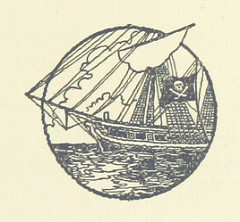Unsure of how to wear regurgitated lace? Well, Cranford’s Mrs Forrester has the answer. In Chapter 8 of Elizabeth Gaskell’s celebrated novel, Mrs Forrester advises us on how to retrieve a prized piece of lace from the belly of your pet. “Of course, your ladyship knows that such lace must never be starched or ironed. Some people wash…
Category: Quotations
Insult of the Week: I am often sorry to notice how unrefined your ideas are
In Mary Cholmondley’s 1893 novel Diana Tempest (vol I, vol II, vol III), our eponymous heroine has the doubtful pleasure of encountering a recently married friend, Madeleine Verelst, at a gathering at the home of Lord and Lady Hemsworth. As is typical for this book, which is characterised by incisive and bleakly funny observations of…
Insult of the Week: You flaming floundering fool
Please excuse our lack of blogging lately! We’ve had a remarkable number of back-to-back deadlines in the last couple of weeks, and are currently knee-deep in an exciting new project that’s due out before Christmas. (I can’t give full details yet, but watch this space!) On a perhaps-not-entirely-unrelated note, our insult this week comes from…
Forgotten Fiction Friday: Flaxman Low and The Story of the Moor Road
“…I think I may say that I am the first student in this field of inquiry who has had the boldness to break free from the old and conventional methods, and to approach the elucidation of so-called supernatural problems on the lines of natural law.” Psychological detective and supernatural specialist Flaxman Low is the creation…
Hereditary ghosts: tales from The Night Side of Nature, 1848
Catherine Crowe (1790-1872) was a noted Victorian author of fiction and folklore, with a strong interest in spiritual matters and the supernatural. Her 1848 book The Night Side of Nature; Or, Ghosts and Ghost Seers is a massive collection of stories and anecdotes on the subject of ghosts and weird phenomena, and was wildly…
Six Great 19th Century Novel Bakes
There are 62 references to cake so far in our 19th- century corpus, ranging from Jane Eyre’s slightly depressing “oaten-cakes” (also found in Shelley’s Frankenstein) to the more lavish offerings of plum-cake, plum-pudding, tea-cake, sponge-cake, and cheese-cake that appear in works by Dickens, Le Fanu and others. Here are a few of the most famous – although…
Insult of the Week: Fops
From one gendered insult to another: this week we’re looking at literary fops, or gentlemen that are – in some way or another – a bit too concerned with manners of dress, elegance and fashion. Our featured image (by the wonderful C. E. Brock) comes from John Galt’s 1821 novel The Annals of the Parish…
Insult of the Week: may his head rot off
In chapter 15 of Bleak House, the narrator Esther Summerson and her guardian Mr. Jarndcye encounter Mr. Gridley, a passionate man from Shropshire, who is embroiled in a labyrinthine court case that has permanently soured his view of the legal system. Although Esther (who is herself a ward in Chancery) and Mr. Jarndyce have not,…
Insult of the Week: inferior poets are absolutely fascinating
Ah, poetry. One of the great literary forms, with a history stretching back as far as the earliest written word! Beloved genre of such giants as Sappho, Homer, Chaucer, and the anonymous author of The Poetic Works of a Weird (1827). Being writers themselves, surely our novelists must have a healthy respect for the poetical…
Insult of the Week: an ass and her panniers
The terminally bored aristocrat Lady Delacour, of Maria Edgeworth’s 1800 novel Belinda, declares in chapter 4 that the only reason she has made it through the last few years is her cherished enmity with her foewoman, Mrs. Luttridge: I cannot count the number of extravagant things I have done on purpose to eclipse her. We…
Insult of the Week: may your constituency reject you
In chapter XI of Richard Marsh’s 1897 work of weird horror, The Beetle, narrator Sydney Atherton has discovered that his beloved childhood friend Marjorie intends to marry the politician Paul Lessingham – who is much older than Sydney (“and a wretched Radical!”). Not to put too fine a point upon it, Sydney is unimpressed. [T]o…
When is Elizabeth Bennet’s Birthday?
In Breihan and Caplan’s excellent 1990 article Jane Austen and the Militia, which throws a considerable amount of light on the historical underpinnings of Pride and Prejudice, the authors argue persuasively that the book is set in the years 1794 and 1795, by picking up on the many small military-historical hints that Jane Austen dropped…
